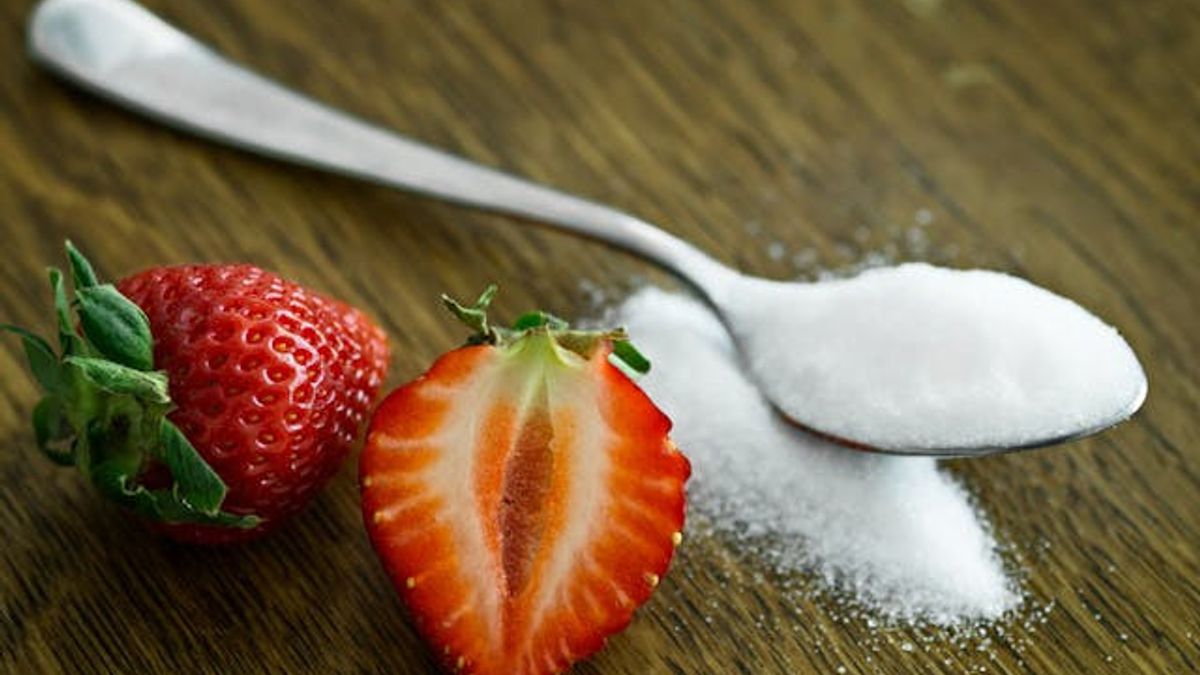JAKARTA - Research published by BMC Psychiatry states that excessive sugar intake can have a negative impact on gut health by disrupting intestinal microbiomes and is associated with depression and anxiety.
Written on the Eating Well page, reported by ANTARA, the survey involved 18,439 men and women over the age of 20 representing various races and ethnicities, including non-Hispanic whites, non-Hispanic blacks, and Mexico-Americans. Each participant completed the Patient's Health Kuesioner-9 (PHQ-9), which is a quick screening assessment for depression.
The researchers also gathered information about the diet through two interviews given the 24-hour food that only asked the person what they had been eating for the past 24 hours.
After conducting several statistical tests on the data, the researchers found a linear relationship between sugar intake and depression. This means that the more participants who consume sugar, the greater the risk of depression.
In particular, they found that for every increase of 100 grams of food sugar per day (about 8 tablespoons or 1/2 cups), the risk of depression increased by 28 percent. Another possible reason for research authors is the relationship between gut health and depression. Excessive sugar intake can have a negative impact on gut health by disrupting intestinal microbiomes. And unhealthy intestines have been associated with depression and anxiety.
Excessive sugar intake can also make your blood sugar soar and then drop drastically. So, if you rely on drinks that contain processed sugar and carbohydrate foods throughout the day, you will be in a constant cycle of ups and downs and this will have a negative impact on your mood and energy. And you don't have to have diabetes to experience this.
American Diet Guidelines 2020-2025 suggest limiting additional sugar intake to less than 10 percent of the total daily calorie intake. If you consume about 2,000 calories per day, that means no more than 12 teaspoons or 48 grams of sugar a day.
The American Heart Association even has stricter guidelines, recommending that women consume no more than 6 teaspoons or 25 grams of additional sugar per day and men stay below 9 teaspoons or 36 grams of additional sugar per day.
SEE ALSO:
Excessive additional sugar intake has been linked to several diseases, including heart disease, cancer, diabetes, high blood pressure, non-alcoholic fatty liver disease, and metabolic syndrome. This can even increase the chances of you developing uric acid, a form of joint inflammation where uric acid forms a crystal like a very painful needle in your joints.
Given the many diseases related to excessive daily intake of supplementary sugar and the fact that many foods with high additional sugar content only offer little nutritional value, it's a good idea to take the time and effort to reduce your overall intake of additional sugar.
The English, Chinese, Japanese, Arabic, and French versions are automatically generated by the AI. So there may still be inaccuracies in translating, please always see Indonesian as our main language. (system supported by DigitalSiber.id)


















